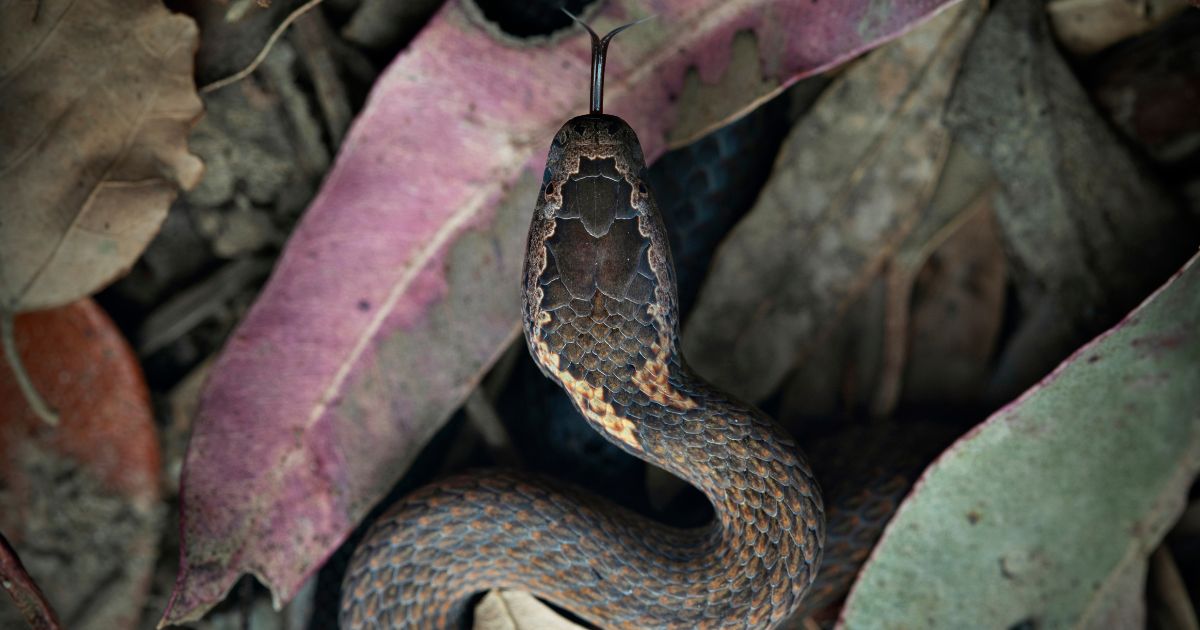2025 Mikla Lewis Grant - Gondwana Rainforest Trust
February 2026
For emergency rescue support 24/7 please call 1300 094 737

With the arrival of warmer months, snakes become more active and encounters with them in the wild become more common. Unfortunately, snakes often suffer from a reputation for aggression, which is largely undeserved. In reality, they perceive humans as potential threats and respond defensively when endangered.
If you encounter a snake in its natural habitat, it's best to maintain a safe distance and allow the snake to go about its business undisturbed. Snakes tend to act defensively only when they sense a direct threat.
It's essential to understand that the majority of snakebite incidents in Australia occur when people attempt to provoke or kill snakes. The key to staying safe around snakes is straightforward: treat them respectfully and cautiously. WIRES' Snake Handling Training places a strong emphasis on this principle, promoting responsible and informed interactions with these remarkable reptiles. By learning how to coexist with snakes and understanding their behaviour, we can contribute to their conservation and ensure the safety of both humans and snakes in their shared environments.
Snake handling is a crucial skill for licensed wildlife rescuers, and WIRES is at the forefront of providing comprehensive training in this area. With snake encounters increasing, it's essential to equip licensed rescuers and handlers with the knowledge and expertise to handle these reptiles safely. WIRES' Snake Handling Training program runs from October to March annually and is designed to provide the essential skills to its members and other organisations. In this blog post, we'll explore the unique aspects of WIRES' training program and its efforts to increase capacity to accommodate growing demand.
This training is for licensed wildlife rescuers and other response agencies, such as the VRA or Fire and Rescue, who assist with snake rescues in the community. WIRES offers a comprehensive training program catering to new learners and those seeking to refresh their skills. The training program is structured to maximise practical, hands-on learning while ensuring participants have a solid theoretical foundation.
WIRES is committed to providing training for both its members and other agencies that assist the community with snake rescues. WIRES works closely with the VRA and various Fire and Rescue stations around NSW to train responders to handle snakes and help keep community members safe.
WIRES' snake handling training is delivered in a blended format, combining an online theory component with a face-to-face workshop component. This unique approach ensures that participants have a solid theoretical foundation before engaging in practical training.
Online Theory: The online theory component covers essential aspects of snake handling, including workplace health and safety (WHS), first aid, snake identification, and an introduction to rescuing and handling snakes. It is mandatory to complete this online component before attending the face-to-face handling session.
Face-to-Face Workshop: The face-to-face workshop component is designed to be as practical as possible, allowing participants maximum hands-on experience with live snakes. This approach ensures that participants can apply their knowledge effectively in real-life rescue situations.
WIRES' Snake Handling Training program is a vital resource for individuals and organisations involved in wildlife rescue in Australia. By offering a blended training format and prioritising the needs of its members, WIRES equips its volunteers and partners with the skills and knowledge needed to handle snakes safely and responsibly. As the demand for snake handling training continues to grow, WIRES is committed to expanding its capacity to ensure more people have access to these essential skills. This dedication to wildlife conservation and education underscores WIRES' crucial role in protecting Australia's unique and diverse wildlife.
Stay in touch and get our regular rescue stories, WIRES updates and a free copy of our 15 Ways to Help Wildlife ebook
February 2026
February 2026
February 2026
February 2026
January 2026
January 2026